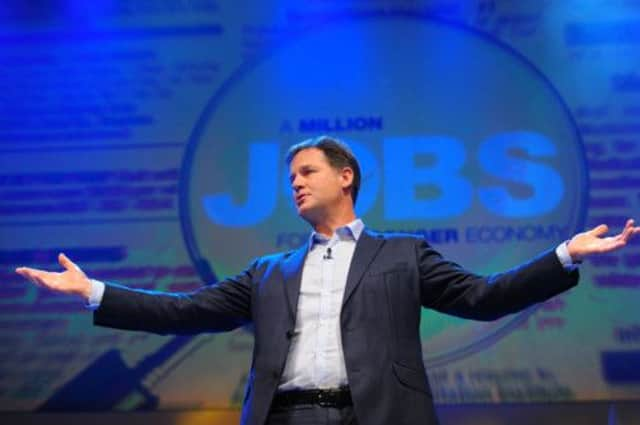David Maddox: A lesson in trust for Nick Clegg


But Liberal Democrat Deputy Prime Minister Nick Clegg’s decision to break ranks over the weekend and attack a policy he helped vote through in 2010 has a much wider significance.
In the 2010 election, Mr Clegg and the Lib Dems opposed the Tory policy of introducing free schools which was essentially setting up a private sector education system without the parents of pupils having to pay fees. As independent schools, free schools are free of the National Curriculum, teachers and heads need no formal teaching qualification, and they can be set up by parents, teachers, individual benefactors or companies.
Advertisement
Hide AdAdvertisement
Hide AdThe idea was first successfully run in Sweden and one of its biggest fans is the SNP Scottish education secretary Mike Russell, but it has now run into problems in England. In the last month a 27-year-old head with no teaching qualification or experience has resigned from a London free school while an Islamic free school in Derby has been failed by Ofsted.
Also, the claim by Mr Gove that the extra funding for children in deprived areas would see free schools set up there has failed to materialise. Instead many of them have been set up by what shadow education secretary Tristram Hunt has dismissed as middle-class “yummy mummies” in well-to-do areas, trying to keep their children away from the hoi polloi.
Suddenly, Mr Clegg has decided to oppose much of what makes free schools free from the state.
The fact that he is too late in expressing his opposition won’t have gone unnoticed by his own party but his decision to attack another part of the coalition agreement and essentially go back on his word could have a major impact on any post-2015 election coalition deals.
The decision to go back on boundary changes has already shown that the Lib Dems cannot be entirely trusted to keep a coalition agreement. The excuse over the Tories blocking House of Lords reform does not stack up in the print of the agreement document. And the Tories are still sore over the way Mr Clegg changed direction on NHS reforms in England.
If the Lib Dems do hold the balance of power in 2015, which is still a fair bet, then the rhetoric over a key Tory policy is going to get in the way of the two parties making another deal, as is the lack of trust on the Lib Dems keeping their word. But significantly, there are now voices in Labour saying that it would be better to have a minority government than risk trusting the Lib Dems.
The whole pitch to voters of the Lib Dems is that they are the party of coalition, but if they cannot be reliable partners then it undermines their own case.